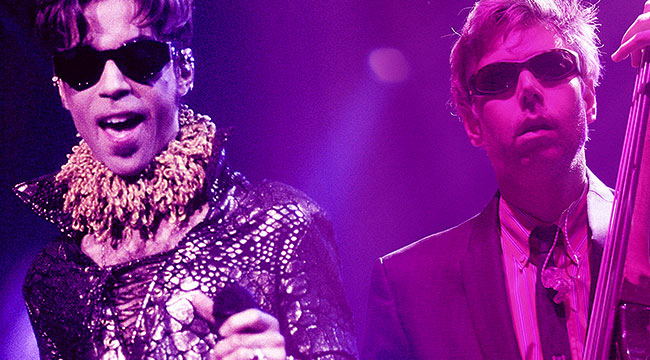
Though most artists aren’t quite as grandiose with their unreleased music storage as Prince was (leaving it in a bank vault that had to be broken into because he was the only person who knew the access code), it’s likely that most musicians will leave unfinished albums, songs, and ideas. It’s a potential boon to fans and to lawyers who indirectly help to define the legacies of artists through court-room combat, but does actual good come from sifting through the creative scrap pile of artists who may have had reason to bury those works?
We don’t yet know the exact contents of Prince’s vault, but the rumors are spectacular. One is also quite heartbreaking — a 1996 children’s music project authored by Prince and his then-wife in celebration of the birth of their son. Unfortunately, the boy died a week into his life and the project was reportedly hidden in the vault. Do we need to hear those very personal songs? It almost feels like an invasion, but it’s impossible to know Prince’s stance on such things since he inexplicably didn’t leave a will or other instructions (despite an obsession with the digital rights management of his intellectual property) and vacillated between reportedly wanting to burn the vault’s contents and accepting that they would one day see the light of day after he died.
Adam Yauch (aka MCA from The Beastie Boys) was not similarly ambiguous when it came time to plot a course for his music after he died. Whereas other artists have been exploited after their death, their images used in commercials or other products (Kurt Cobain’s appearance in Guitar Hero springs to mind), and their music feasted upon by advertisers, Yauch’s will is restrictive and respectful of the footprint that he wanted to leave on the world.
“Notwithstanding anything to the contrary, in no event may my image or name or any music or any artistic property created by me be used for advertising purposes.” reads Yauch’s will, demonstrating a mindfulness with regard to the way that technology has circumvented death when it comes to creating celebrity avatars for commercials and other projects.
It’s interesting that the ban on the use of Yauch’s music hasn’t extended to movie trailers — like the one for Star Trek Beyond which features “Sabotage” — but it’s possible that Yauch, who was a cinephile, filmmaker, and patron of the arts by way of Oscilloscope Laboratories gave a variance for anything having to do with film. And it’s also clear that the remaining members of the Beastie Boys (Mike Diamond and Adam Horovitz) have been selective about which films get to use their music, rejecting a request to use “Sabotage” in the Arnold Schwarzenegger film of the same name. They also haven’t been shy about pursuing litigation if pushed to that point by companies who they feel have used their intellectual property in violation of Yauch’s wishes. As is evidenced by their suit against Monster, the energy drink manufacturer.
In their role as the partial guardians of Yauch’s musical legacy, Diamond and Horovitz have also seemingly shown no interest in releasing or profiting from any unreleased music that the band accumulated over the years, including their final recording sessions, which took place just before Yauch’s death.
As a fan, I acknowledge that it’s hard to narrow down how that makes me feel. On one hand, it lifts the heart to know that Yauch’s work hasn’t been seized upon by opportunists who will pay lip service to legacy in an effort to line their pockets. Guided by his adamant wishes, Diamond, Horovitz, and Yauch’s wife, Dechen, are clearly following a blueprint meant to preserve dignity over dollars. They’re more concerned with “should we” than they are with “could we,” and that’s all you can ask for. But despite that, I know that MCA’s voice is on tape somewhere out of reach, likely never to be heard by my ears or yours. And because of that, I’m on fire with curiosity and a want to not accept that there is no more.
That’s what this is really all about: The desire to hang on to the people who inspire us with their art after they’ve been snuffed out. That’s why, in the hearts of some, Tupac isn’t dead. That’s why we parse the crumbs of Kurt Cobain’s life. We do the same thing that we do with lost loved ones because holding on to a thread even while the scarf becomes undone feels as close to normal as possible. Acceptance is a motherf*cker — that’s another way to put it.
Though it’s easy to salivate at the idea of there being ample Prince music on the way, we shouldn’t ignore the power of an artist’s final stain on our consciousness. Do you want the last new thing from an icon to be something that they purposely put out into the world — like Bowie’s fitting Blackstar finale or MCA’s resiliently ferocious work on Hot Sauce Committee Pt. 2 as he passed the baton back and forth with Mike D and Ad-Rock — or do you want that last thing to be a stolen moment or the musical equivalent of a crumpled piece of scrap paper, ironed flat in an effort to pass it off as something notable? Perhaps there can be a happy medium, but we should all hope for a little “should we?” when the time comes for other people to choose an artist’s final creative dispatch.






